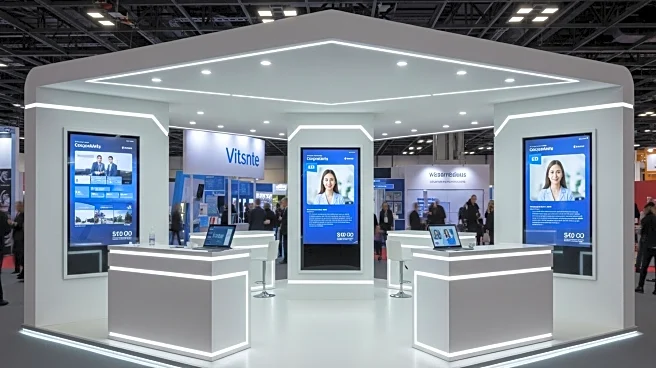What's Happening?
Immigration and Customs Enforcement (ICE) held a recruitment expo in Dallas, Texas, as part of a significant hiring initiative under the Trump administration. The event, held at the Esports Stadium, attracted a diverse group of applicants, including military veterans and individuals seeking a career change. ICE plans to hire 10,000 new officers by next year, nearly tripling its workforce. The Department of Homeland Security is investing over $40 million in recruitment efforts, with incentives such as a $50,000 bonus for qualified candidates. Despite protests outside the venue, the expo drew significant interest, with applicants lining up early to secure positions. ICE aims to issue 900 tentative offers by the end of the two-day event.
Why It's Important?
The recruitment surge reflects the Trump administration's focus on immigration enforcement, aiming to increase deportations and expand ICE's presence, particularly in Democratic-led sanctuary cities. This initiative could significantly impact U.S. immigration policy, potentially leading to increased deportations and heightened tensions in communities with large immigrant populations. The hiring spree also raises concerns about the rapid expansion of ICE and its potential implications for civil liberties and community relations. Critics fear the creation of an ideologically driven workforce loyal to President Trump's policies, while supporters view it as a necessary step to enhance national security.
What's Next?
ICE plans to deploy new recruits quickly, with training reduced to eight weeks. The agency will focus on on-the-job training to ensure recruits are prepared for their roles. The hiring initiative is part of a broader strategy to meet the administration's goal of 1 million deportations annually. As ICE expands its operations, it may face increased scrutiny and opposition from civil rights groups and local governments. The long-term impact on immigration policy and community relations remains uncertain, with potential changes depending on future political shifts.










